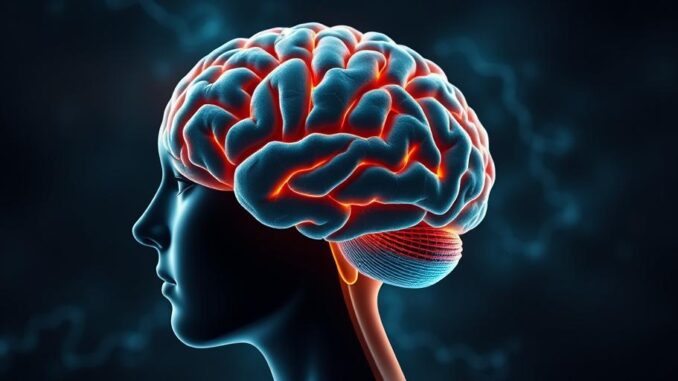
Summary
Mount Sinai researchers discovered dopamine receptors in the ventral hippocampus, a brain region controlling approach/avoidance behavior. These receptors, D1 and D2, play distinct roles in emotional regulation and decision-making under stress. This discovery offers new insights into anxiety and depression, paving the way for targeted treatments.
** Main Story**
Okay, so Mount Sinai researchers just dropped a fascinating bombshell about anxiety and depression; it turns out dopamine’s playing a much bigger role than we thought. They’ve pinpointed dopamine receptors in the ventral hippocampus – that’s a brain area we didn’t really associate with dopamine activity before. This could seriously change how we understand and, more importantly, treat these common mood disorders. The study’s in Nature, and it’s all about how D1 and D2 dopamine receptors influence our approach/avoidance behaviors, especially when we’re stressed. Who knew dopamine was so multi-faceted, right? We always think reward and motivation, but this expands the picture.
The Ventral Hippocampus: It’s Not Just About Memory Anymore
The ventral hippocampus, it’s not just some memory storage unit, it’s a key player in how we process emotions and make tough decisions when anxiety kicks in. Think about it: You’re facing a situation with good and bad consequences, that’s anxiety fuel! That’s where this brain area steps in. The Mount Sinai team, they were observing how dopamine signals inside this region affected how mice approached or avoided things. Turns out, D1 and D2 receptors – which are on different types of brain cells – are calling the shots here. And get this: they do opposite things.
While activating D1 ramps up avoidance, D2 activation actually chills out the fear response. It’s kinda backwards from what you’d expect. That’s exactly why it’s so interesting though and it really hints at how D2 receptors are involved in keeping our anxiety and moods in check. I mean, who would have thought? It’s certainly given me a lot to think about.
Why This Matters to Addiction Recovery (and Maybe You)
Now, why is this crucial? Well, it could seriously improve addiction recovery programs. Addictions and mood disorders often go hand-in-hand, a terrible combo. If we can figure out exactly how these dopamine receptors in the ventral hippocampus influence emotional regulation, we can create treatments that are way more targeted. For instance, messing with D2 receptor activity might be a new way to tackle anxiety and depression in folks fighting addiction.
Plus, I mean, think of the possibilities! We could see how this translates to us, and maybe find drugs that target these dopamine receptors specifically.
Dopamine: Shaking off It’s ‘Reward’ Reputation
Before, dopamine research was kinda fixated on the striatum, which is more about motor skills and reward. But this study is spotlighting dopamine’s reach in areas responsible for learning, memory, and even feelings. It’s essential to rethink dopamine, and understanding how it affects our emotions, in healthy and unhealthy ways. That it plays a big role in the ventral hippocampus, shows we need to look again at other areas where it’s been underestimated. It could be, that dopamine plays a bigger part in many mental health conditions than we ever realized.
I’m thinking this could open up tons of new research avenues looking at dopamine and a bunch of different neuropsychiatric disorders, don’t you agree?
Future Research: Aiming For Dopamine Circuits
And you know, I was just thinking, the research team is totally right; more research is needed. We gotta see if we can actually use this new understanding of dopamine circuits for treatments. It could lead to some real breakthroughs for anxiety, depression, and even addiction, because those dopamine pathways often get messed up. Plus this shows again just how complicated neurotransmitters are and how they all work together to shape our emotions and how we act. If that makes sense? The brain’s emotional circuitry is super complex. And these findings give us a fresh perspective on what’s causing anxiety and depression, which might just lead to treatments that work better. Maybe even, dare I say, a cure? I can’t wait to see what happens next!


Be the first to comment